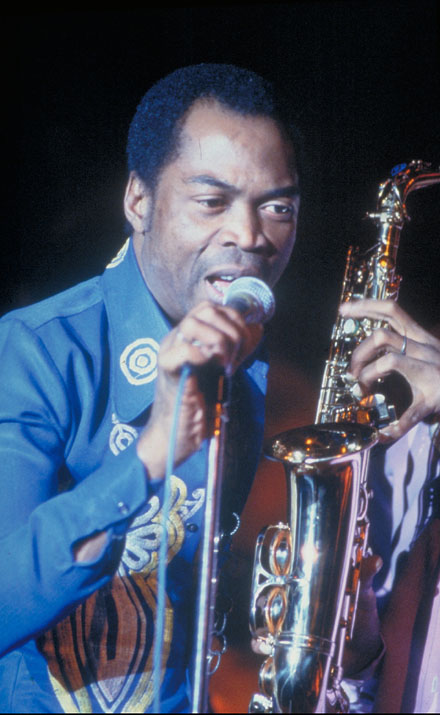On Emancipation Day, Aug. 1 two colorful Black men were revealed in document and a bio-pic that probably enlightened more than a few about the making of legends.
On this side of the Atlantic, the film “Get On Up” paints a portrait of the acclaimed King Of Soul, James Brown, a legendary star who was embraced by the world but claimed by Harlem.
From the continent of Africa, Olufela Olusegun Oludotun Ransome-Kuti, the king of Afro-beat is again explored in a document titled “Finding Fela.”
Adapted and inspired by the Broadway musical “Fela” which opened in 2009 — and received theater’s highest honors with 11 Tony nominations — the latest foray into the life of Nigeria’s king of soul parallels the journey of both iconic soul brothers.
Although Fela was born into a comfortable and loving family lifestyle and Brown’s early years suffered in a southern shack both used music as a weapon for their expression.
The parallels are many, both were trailblazers, fashionable, disciplined, imprisoned, ceremoniously held multi-marriages, each led large bands and used horns and drums to amplify their message, and together measured less than 12 feet.
Revered here and over there as ‘the hardest working man in show business” Brown’s passion to perform at the Apollo in Harlem was more than requited love for the people and Village.
While Brown had the Apollo, Fela claimed the Shrine.
Located in the then capital city of Lagos in the middle of a community he dubbed it the Kalakuta Republic and practically exiled himself from the rest of the city.
He called himself the Black president and chief priest of that community.
There, Fela was revered.
Nightly appearances drew music lovers, dissidents against the government, revelers, musicians and afro-beat fans. Inside the humble setting where a steady waft of marijuana smoke dulled the view and corrugated iron sheltered the masses, Fela regularly denounced corruption and police brutality. He was a crusader, political, determined and bold – a guerilla warrior.
And while he was a thorn in the side of the powers, Fela was the pied piper to those in proximity of the Kalakuta Republic.
Archival footage in the documentary gives credibility to his stance.
Now playing at IFC Center, “Finding Fela” pays tribute to the legend whose influence includes Malcolm X and James Brown. That one man’s lyrics could impact so many lives in so many regions of the world is only a feat enjoyed by the likes of Jamaica’s reggae icon Bob Marley, Brown and perhaps a handful of musicians and singers. The same year apartheid was abolished in South Africa, Fela played the Apollo Theater. Along with his Egypt 80 band, Fela made an indelible imprint on Harlem.
Fela died in 1997. The procession that passed by his glass casket seemed unending. Similarly, on Christmas Day 2006 Brown died and throngs of fans lined the circumference of the Apollo Theater to pay respects and see him for the last time on the stage of the reputed Harlem landmark.
“Get on Up” has opened to many more theatre’s than “Finding Fela.”
However on Aug, 15, many more will be able to find out a little more about the African superstar when the film opens nationally.
Become a Harlem Insider!
By submitting this form, you are consenting to receive marketing emails from: . You can revoke your consent to receive emails at any time by using the SafeUnsubscribe® link, found at the bottom of every email. Emails are serviced by Constant Contact









